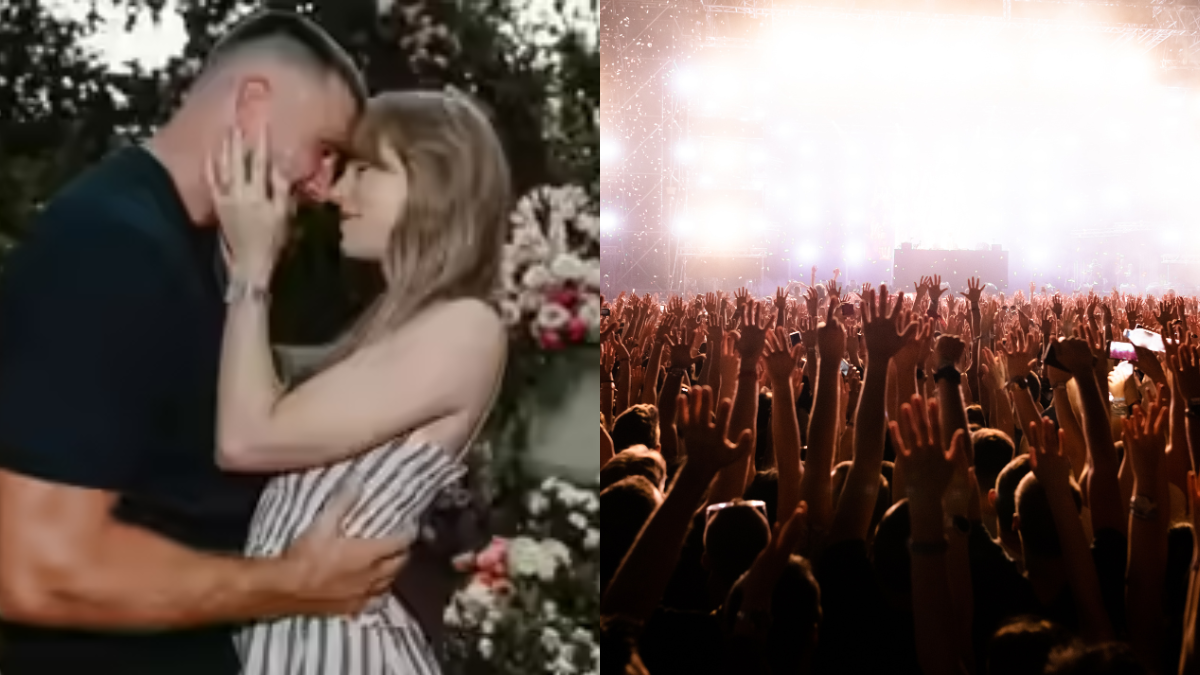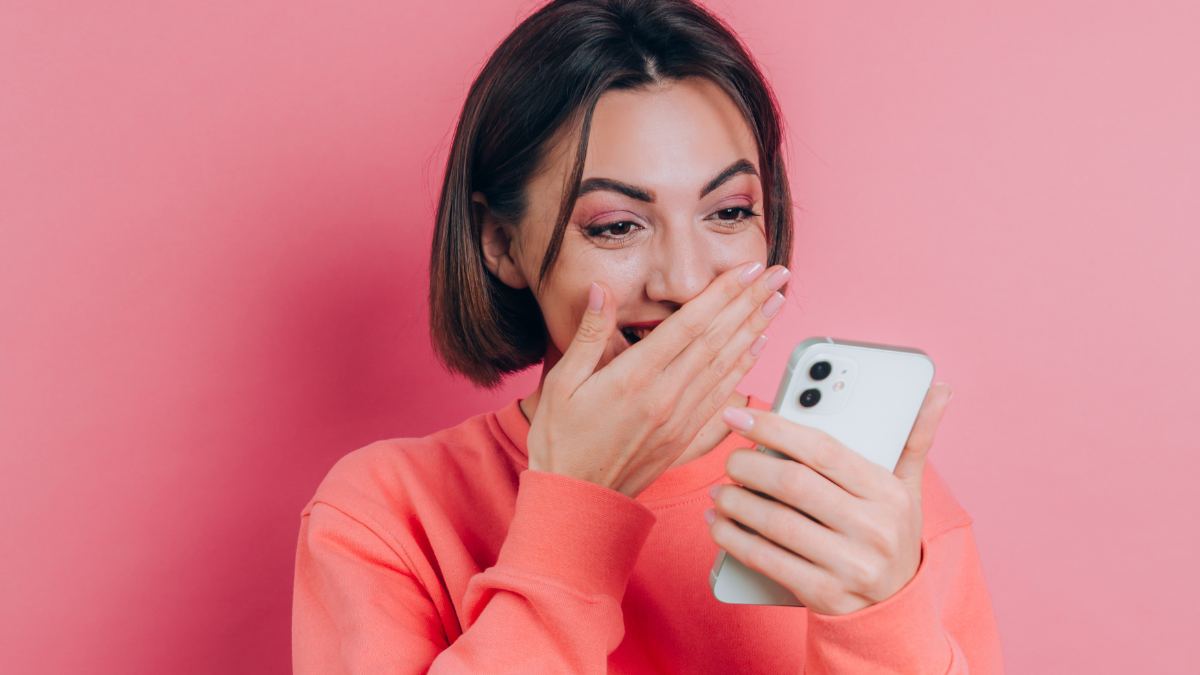
The Cambridge Dictionary has declared Parasocial as the Word of the Year 2025, creating a buzz around how Gen Z and the social media generation are now seeking human connections. In an era when loneliness and AI connections are on the rise, Parasocial relationships are being coined as the language of fandom and imaginary bonds with celebrities and AI chatbots.
Table of Content:-
The massive following of Taylor Swift, whose fans call themselves Swifties, and the attention on Travis Kelce, along with the rise in popularity of Artificial Intelligence (AI) bonds, whether as a therapist, friend, personal assistant, or office buddy, are credited in making Parasocial a worldwide talking point.
While the Internet has exploded with the use of this new term in everyday conversations, it has also fuels a discussion around the psychology behind parasocial relationships and whether they are healthy. Dr Divya Shree K. R., Consultant – Psychiatry, Aster CMI Hospital, Bangalore, explains what needs to be understood and taken care of.
What Does Parasocial Mean?
The Cambridge Dictionary defines the word Parasocial, an adjective, as involving or relating to a connection that someone feels between themselves and a famous person they personally do not know, a character in a book, film, TV series, etc., or an artificial intelligence.
The term was first coined by sociologists Donald Horton and Richard Wohl in 1956 and describes the relationship viewers form with television and media personalities.
Dr Divya Shree explains a Parasocial relationship as totally one-sided. “In these relationships, a person feels emotionally attached to someone who does not even know them, such as a TV celebrity, influencer, or book character, and this relationship forms through repeated watching or following their content.” She adds, “These relationships can feel comforting and give a sense of friendship or support, but they are not real social interactions.”
Swifties feeling emotionally connected to the lyrics, music, relationships, engagement, and everything about Taylor Swift’s life is the best example to understand this phenomenon.
With this, the term has shifted from academic writing to personal conversations as netizens form a steady bond with influencers, social media personalities, and even with AI tools.
View this post on Instagram
Are parasocial relationships healthy?
The timing of Parasocial being chosen as the word of the year could not be better than this era, when real human connections are lacking and loneliness has gripped the world. According to the World Health Organization (WHO), one in every six people worldwide feels lonely and lacks real, trustworthy human relationships. But what do Parasocial relationships mean in this situation, and are they healthy?
According to the Cleveland Clinic, Parasocial relationships cannot be truly defined as healthy or unhealthy; it mostly depends on your mental health. If you are in a good emotional state, this phenomenon is fine, but during a bad phase, it can drain your emotional strength.
Also Read: Online Therapy Vs Human Psychologists: Can The Former Replace Or Fill In or the Latter? Here’s What Is Being Said
Dr Shree explains, “Parasocial relationships can be healthy when they give comfort, inspiration, or positive feelings without replacing real-life connections.” She further adds, “It turns into unhealthy relationships when a person depends too much on this one-sided bond for emotional support, begins to ignore real relationships, or feels strong jealousy or sadness when the influencer does not respond.”
Psychology Behind Parasocial Relationships
“The psychology behind parasocial relationships comes from how our brains naturally form emotional bonds when we see someone repeatedly, hear their voice, and learn personal details, even if the person is on a screen and not physically present,” explains Dr Shree. “Social media increases this effect by showing daily routines, personal stories, and direct messages, which create an illusion of closeness, making the viewer feel understood even without any real interaction.”
Modern research shows that parasocial relationships are sometimes formed due to loneliness, resonance from the public figure’s life story, a lack of real-life bonds, and isolation. This creates a space where watching someone online, or reading about the personality or character, helps you feel connected. With time, it leads you to deep-diving into their personal and professional life, making you first their fan and later obsessed with their choices, work, and life.
“The psychology behind parasocial relationships lies in how our brains naturally form emotional bonds when we see someone repeatedly, hear their voice, and know personal details, even if the person is on a screen and not physically present,” mentions Dr Shree. “Increased social media presence led to following the daily routines, personal stories, and direct messages of the celebrity, which create an illusion of closeness, making the viewer feel understood even without any real interaction.”
Also Read: Subtle Signs Your Child Is Struggling Emotionally and How to Address Them Early
Parasocial Relationships As a Coping Mechanism
In many cases, parasocial relationships also work as a coping mechanism because they provide emotional comfort, stability, and a sense of connection during stressful or lonely times, even though the relationship is one-sided.
“When someone follows a celebrity, influencer, or fictional character they admire, it can make them feel less alone and give them a safe place to escape from real-life worries,” Dr Shree states.
Extremes of Parasocial Relationships
According to Dr Shree, the extremes of parasocial relationships happen when a person becomes excessively emotionally attached to a celebrity or influencer and starts believing the bond is real.
Prolonged emotional attachment can lead to a delusion that you share a real-life bond with the personality. In severe cases, the person may stalk, harass, or threaten the public figure because they feel entitled to attention or feel betrayed by something the celebrity does.
This extreme form can also harm the person’s own life, causing them to ignore friends, damage real relationships, or feel deep sadness when the public figure does not respond. In very rare cases, this obsession can lead to risky behaviour or self-harm.
Also Read: ‘Teens’ Skin Not For Elaborate Viral Skin Care Routines’ Dermatologist Warns Long-Term Health Issues Including Cancers
Bottomline
In the Internet era, Parasocial Relationships have become a trend, but they remain positive only as long as one follows healthy boundaries. A balanced parasocial relationship provides entertainment or light motivation and does not substitute for real friends and family.
Also watch this video
FAQ
What is a parasocial relationship?
Parasocial relationship refers to a bond that someone feels between themselves and a popular personality without knowing them in real life.Is having a crush parasocial?
Yes, having a crush on any public figure or book character is considered a case of a parasocial relationship.What does parasocial mean?
The term parasocial is an adjective which refers to someone feeling an imaginary bond with any public figure, TV Star or fictional character.Is a parasocial relationship good or bad?
Medical reports do not define parasocial relationships as good or bad. It depends on the mental condition of the person forming the emotional bond.
How we keep this article up to date:
We work with experts and keep a close eye on the latest in health and wellness. Whenever there is a new research or helpful information, we update our articles with accurate and useful advice.
Current Version
Nov 19, 2025 14:34 IST
Published By : Sameeksha Sharma